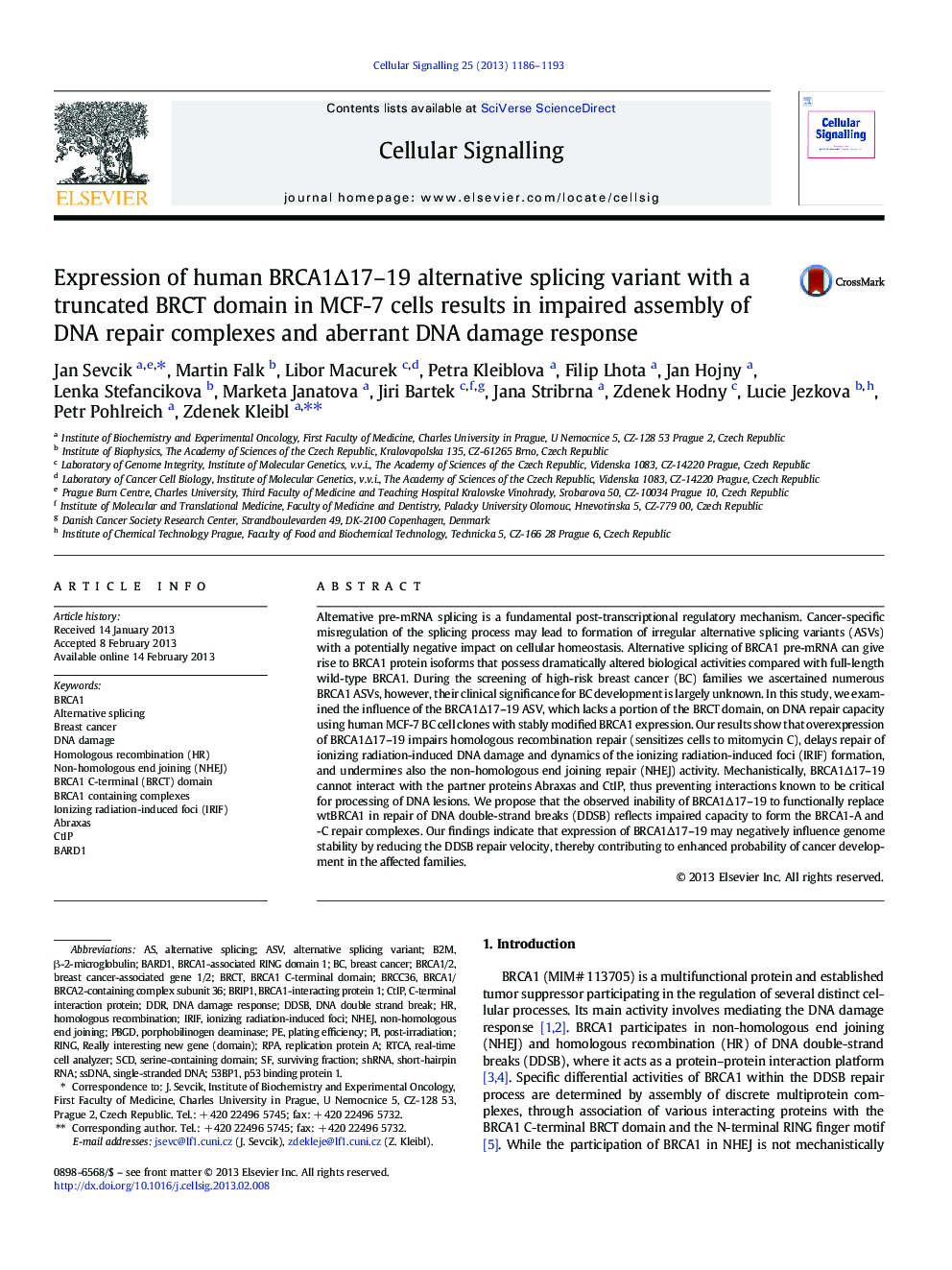| کد مقاله | کد نشریه | سال انتشار | مقاله انگلیسی | نسخه تمام متن |
|---|---|---|---|---|
| 1963491 | 1058453 | 2013 | 8 صفحه PDF | دانلود رایگان |

Alternative pre-mRNA splicing is a fundamental post-transcriptional regulatory mechanism. Cancer-specific misregulation of the splicing process may lead to formation of irregular alternative splicing variants (ASVs) with a potentially negative impact on cellular homeostasis. Alternative splicing of BRCA1 pre-mRNA can give rise to BRCA1 protein isoforms that possess dramatically altered biological activities compared with full-length wild-type BRCA1. During the screening of high-risk breast cancer (BC) families we ascertained numerous BRCA1 ASVs, however, their clinical significance for BC development is largely unknown. In this study, we examined the influence of the BRCA1Δ17–19 ASV, which lacks a portion of the BRCT domain, on DNA repair capacity using human MCF-7 BC cell clones with stably modified BRCA1 expression. Our results show that overexpression of BRCA1Δ17–19 impairs homologous recombination repair (sensitizes cells to mitomycin C), delays repair of ionizing radiation-induced DNA damage and dynamics of the ionizing radiation-induced foci (IRIF) formation, and undermines also the non-homologous end joining repair (NHEJ) activity. Mechanistically, BRCA1Δ17–19 cannot interact with the partner proteins Abraxas and CtIP, thus preventing interactions known to be critical for processing of DNA lesions. We propose that the observed inability of BRCA1Δ17–19 to functionally replace wtBRCA1 in repair of DNA double-strand breaks (DDSB) reflects impaired capacity to form the BRCA1-A and -C repair complexes. Our findings indicate that expression of BRCA1Δ17–19 may negatively influence genome stability by reducing the DDSB repair velocity, thereby contributing to enhanced probability of cancer development in the affected families.
► Inframe alternative BRCA1 splicing variant Δ17–19 ASV lacks BRCT domain.
► This variant cannot interact with BRCA1 binding partners Abraxas and CtIP.
► Its expression in MCF-7 cells impairs both HR and NHEJ and prolongs IRIF formation.
► The negative effect of the Δ17–19 does not depend on the presence of wtBRCA1.
► These results indicate that BRCA1Δ17–19 may negatively influence genome stability.
Journal: Cellular Signalling - Volume 25, Issue 5, May 2013, Pages 1186–1193